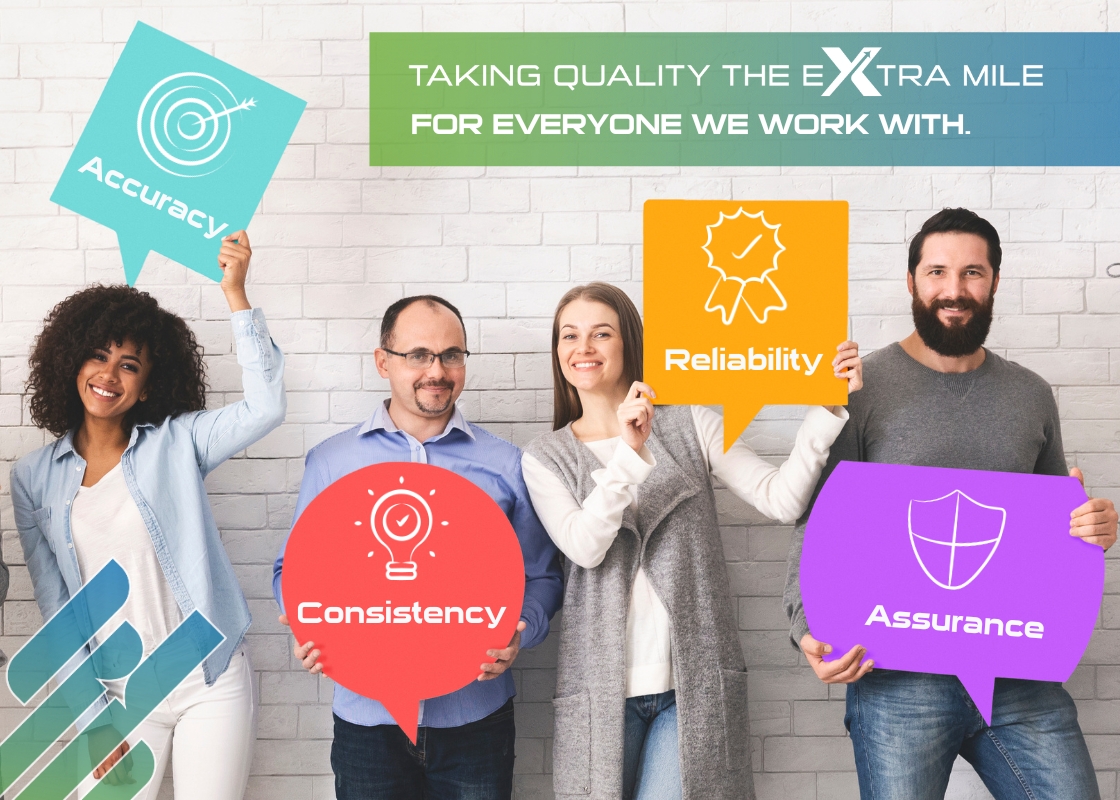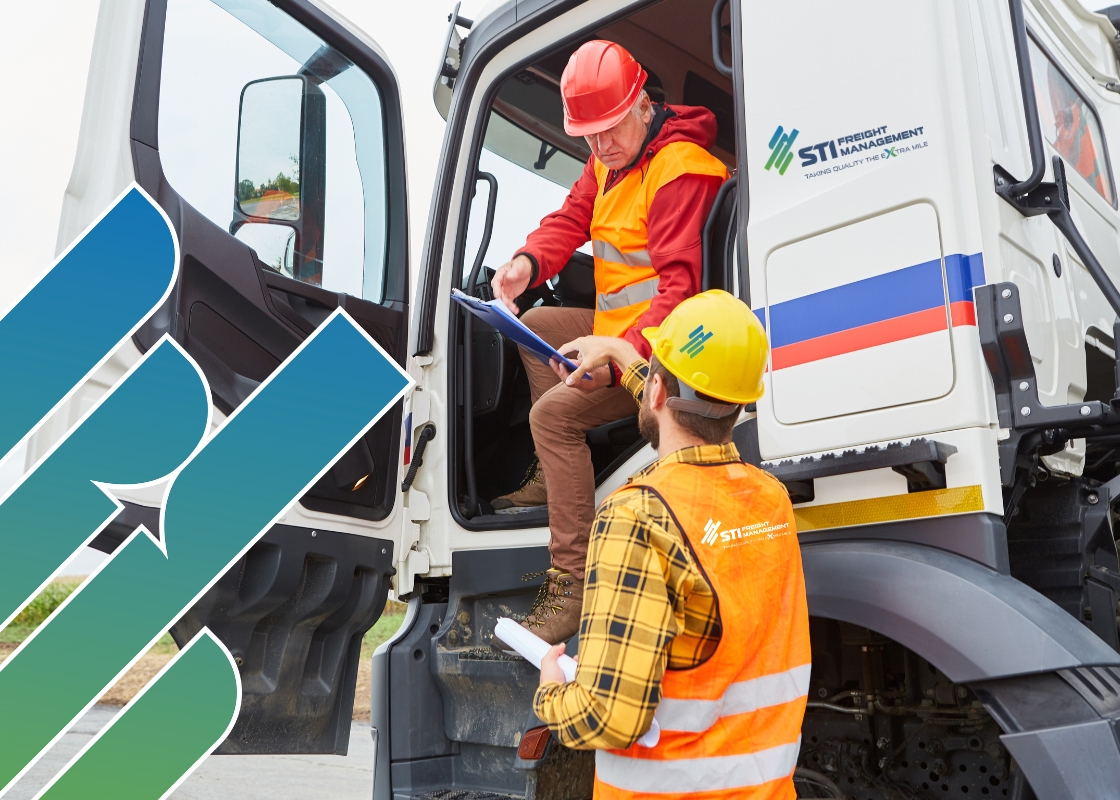An Exclusive Interview with our European STI FM Quality Assurance Team
Taking quality the extra mile for everyone we work with, ensuring trust and assurance in our services.

In the world of temperature-controlled logistics, maintaining the highest quality standards is crucial. With a commitment to quality and customer satisfaction, our European QA team plays a pivotal role in ensuring that every aspect of our operations aligns with local regulations, customer requirements, and international quality standards.
Join us as we delve into an insightful interview with this dedicated team! Discover how our diverse team navigates the unique regulations and operational practices of each European country, tackles complex audits, selects the best hauliers, and stays informed about industry best practices to deliver exceptional service. Explore the challenges they've faced and the innovative projects they've initiated to enhance the quality of our European transport services.
What is the core mission and role of the QA team within STI FM, and how does it contribute to our commitment to quality and customer satisfaction?
In Europe, there are many different business and transport practices due to various cultures, regulations, and traditions. Our QA team embraces this diversity, as team members have firsthand experience shaped by local laws and customs. This diverse knowledge is a valuable asset that helps us enhance our QA processes. We work on aligning procedures, certifications, and standards across all STI FM entities in Europe. These discussions cover important areas such as handling claims, addressing haulier-related challenges, and making decisions about our ongoing partnerships. Through these collective efforts, our QA team ensures that we maintain high-quality standards, avoid repeating errors, and reaffirm our dedication to serving our customers.
Join us as we delve into an insightful interview with this dedicated team! Discover how our diverse team navigates the unique regulations and operational practices of each European country, tackles complex audits, selects the best hauliers, and stays informed about industry best practices to deliver exceptional service. Explore the challenges they've faced and the innovative projects they've initiated to enhance the quality of our European transport services.
What is the core mission and role of the QA team within STI FM, and how does it contribute to our commitment to quality and customer satisfaction?
In Europe, there are many different business and transport practices due to various cultures, regulations, and traditions. Our QA team embraces this diversity, as team members have firsthand experience shaped by local laws and customs. This diverse knowledge is a valuable asset that helps us enhance our QA processes. We work on aligning procedures, certifications, and standards across all STI FM entities in Europe. These discussions cover important areas such as handling claims, addressing haulier-related challenges, and making decisions about our ongoing partnerships. Through these collective efforts, our QA team ensures that we maintain high-quality standards, avoid repeating errors, and reaffirm our dedication to serving our customers.
How do the QA Team's efforts in maintaining high quality standards enhance the success of our European transport operations?
As the QA Team, we implement various measures to ensure quality and food safety, always respecting local business cultures. Our dedication is evident through our ISO 9001:2015 certification and strict adherence to IFS-logistics 2.3 principles. To achieve this, a continuous improvement process is followed, including internal entity audits, audits from customers, and audits of our carriers. Collaboration within our European team plays a crucial role, ensuring that our Quality Management Representatives are fully integrated into our local entities. These efforts collectively contribute to the maintenance and enhancement of our operations, supporting our business success locally.
What approach does the QA team take to assess and audit our existing transport partners, ensuring they align with local quality compliance standards?
We've learned from experience that just having signed and accepted conditions and documents doesn't always guarantee that carriers are consistently following the agreed rules and requirements. That's why our QA team conducts spot checks, paying close attention to hygiene, equipment quality, and temperature control devices. We also follow PQMP, a carrier audit program developed in collaboration with a global customer, which align with GFSI (Global Food Safety Initiative) and ISO 9001:2015 requirements. These audits follow a scoring system, and if needed, could result in the suspension of cooperation. While these factors can sometimes add to the complexity of our local processes, we are committed to ensuring compliance, even if it requires extra time and effort.
As the QA Team, we implement various measures to ensure quality and food safety, always respecting local business cultures. Our dedication is evident through our ISO 9001:2015 certification and strict adherence to IFS-logistics 2.3 principles. To achieve this, a continuous improvement process is followed, including internal entity audits, audits from customers, and audits of our carriers. Collaboration within our European team plays a crucial role, ensuring that our Quality Management Representatives are fully integrated into our local entities. These efforts collectively contribute to the maintenance and enhancement of our operations, supporting our business success locally.
What approach does the QA team take to assess and audit our existing transport partners, ensuring they align with local quality compliance standards?
We've learned from experience that just having signed and accepted conditions and documents doesn't always guarantee that carriers are consistently following the agreed rules and requirements. That's why our QA team conducts spot checks, paying close attention to hygiene, equipment quality, and temperature control devices. We also follow PQMP, a carrier audit program developed in collaboration with a global customer, which align with GFSI (Global Food Safety Initiative) and ISO 9001:2015 requirements. These audits follow a scoring system, and if needed, could result in the suspension of cooperation. While these factors can sometimes add to the complexity of our local processes, we are committed to ensuring compliance, even if it requires extra time and effort.


How does the QA Team stay updated on industry best practices and regulations in European transport quality and compliance?
To stay informed, we stay connected with local transport and logistics organizations, read industry magazines and newsletters, and actively engage in pharmaceutical QA forums and exhibitions. This helps us keep up with industry trends and customer expectations. We make sure to share this valuable knowledge with our European QA team. We believe in using information from various sources and departments, as it's essential for our work.
Could you share some of the challenges you've in QA, and the strategies you've used to overcome them?
Some carriers may find our extensive onboarding process challenging, particularly small and medium-sized enterprises with limited IT infrastructure. Additionally, the concept of our Haulier Approval Process (HAP) can still be considered unusual in the industry. However, this process is essential to mitigate risks when working with external partners. To help our partners and address these issues, we are providing the STIlive online platform, which makes submitting documents easier.
At times, we encounter challenges in ensuring that our partner hauliers consistently meet our quality standards. Occasionally, carriers or drivers may not fully fulfill their commitments. This could involve issues with transport equipment requirements, not meeting specific customer needs, or communication gaps. To address such situations, we conduct spot checks, utilize the PQMP process to audit hauliers, and maintain regular communication to ensure they understand our expectations.
As a Freight Manager, we work with external hauliers since we don't own trucks or employ drivers ourselves. While this presents challenges in tracking and tracing shipments due to the variety of tracking systems used by hauliers, we are always seeking innovative solutions to streamline the collection of important delivery reliability and performance data. For example, our online platform, STIlive, is designed to help us overcome these challenges and make the process more efficient.
To stay informed, we stay connected with local transport and logistics organizations, read industry magazines and newsletters, and actively engage in pharmaceutical QA forums and exhibitions. This helps us keep up with industry trends and customer expectations. We make sure to share this valuable knowledge with our European QA team. We believe in using information from various sources and departments, as it's essential for our work.
Could you share some of the challenges you've in QA, and the strategies you've used to overcome them?
Some carriers may find our extensive onboarding process challenging, particularly small and medium-sized enterprises with limited IT infrastructure. Additionally, the concept of our Haulier Approval Process (HAP) can still be considered unusual in the industry. However, this process is essential to mitigate risks when working with external partners. To help our partners and address these issues, we are providing the STIlive online platform, which makes submitting documents easier.
At times, we encounter challenges in ensuring that our partner hauliers consistently meet our quality standards. Occasionally, carriers or drivers may not fully fulfill their commitments. This could involve issues with transport equipment requirements, not meeting specific customer needs, or communication gaps. To address such situations, we conduct spot checks, utilize the PQMP process to audit hauliers, and maintain regular communication to ensure they understand our expectations.
As a Freight Manager, we work with external hauliers since we don't own trucks or employ drivers ourselves. While this presents challenges in tracking and tracing shipments due to the variety of tracking systems used by hauliers, we are always seeking innovative solutions to streamline the collection of important delivery reliability and performance data. For example, our online platform, STIlive, is designed to help us overcome these challenges and make the process more efficient.
Could you share some of the projects or efforts the QA Team has been involved in to enhance the quality of our European transport services?
Our team has made some positive changes. We updated the PQMP, and it's already been approved globally, thanks to our QA Team's valuable input. Looking ahead, we're using the STIlive digital platform to streamline haulier approvals. We'll collect info about the sustainability of our new hauliers to create a database. This will help our operations team find ways to be more environmentally friendly in our daily work.
Our team has made some positive changes. We updated the PQMP, and it's already been approved globally, thanks to our QA Team's valuable input. Looking ahead, we're using the STIlive digital platform to streamline haulier approvals. We'll collect info about the sustainability of our new hauliers to create a database. This will help our operations team find ways to be more environmentally friendly in our daily work.


